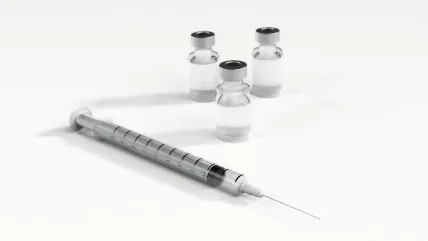
South Korean biotech company Samsung Bioepis has received the US Food and Drug Administration (FDA) approval for Pyzchiva (ustekinumab-ttwe) as a biosimilar to Stelara.
Stelara (ustekinumab) is a monoclonal antibody therapy developed by Janssen to treat Crohn’s disease, ulcerative colitis, plaque psoriasis, and psoriatic arthritis.
The US FDA approved Pyzchiva as 45mg/0.5 mL and 90mg/mL pre-filled syringes for subcutaneous injection and 130mg/26mL single-dose vial for intravenous infusion.
In addition, the US regulatory agency provisionally determined that Pyzchiva would be interchangeable with its reference drug Stelara.
Developed by Samsung Bioepis, the biologic drug is approved for all indications of its reference medicine and will be commercialised in the US by Swiss pharmaceutical company Sandoz.
In September last year, Sandoz and Samsung Bioepis signed a development and commercialisation agreement for the biosimilar.
As per the agreement, Sandoz will commercialise Pyzchiva in the US, Canada, the European Economic Area (EEA), Switzerland, and the UK.
Samsung Bioepis will be responsible for development, registration, intellectual property, manufacturing, and supply.
Sandoz chief scientific officer Claire D’Abreu-Hayling said: “This approval reflects our dedication to ensuring high-quality treatments are universally accessible.
“By further expanding our immunology portfolio with affordable biosimilar alternatives, we continue to make significant strides towards achieving our goal of delivering life-changing medicines to the patients who need them.”
The FDA approval of Pyzchiva is based on a totality of evidence including analytical, non-clinical and clinical data showing biosimilarity to Stelara, with no variation in safety, purity, and potency.
In a randomised, double-blind, three-arm, parallel-group, single-dose Phase 1 clinical study, Pyzchiva showed pharmacokinetics (PK) equivalence with Stelara.
The study also showed comparable safety, tolerability, and immunogenicity profiles between Pyzchiva and Stelara in healthy volunteers.
In Phase 3 clinical study, conducted in patients with moderate to severe plaque psoriasis, Pyzchiva showed biosimilarity with Stelara through equivalent efficacy and comparable safety.
Furthermore, the Phase 3 study showed biosimilarity between Pyzchiva and Stelara in terms of efficacy, safety, pharmacokinetics, and immunogenicity.
Samsung Bioepis vice president and regulatory affairs team leader Byoung In Jung said: “The FDA approval of Pyzchiva as a biosimilar to Stelara is an important milestone for patients living with inflammatory conditions, as biosimilars can offer more choice and access to biologic treatments.
“In addition, biosimilars have a potential to reduce the financial burden of healthcare systems, especially in the US where biologics account for more than 46% of the annual drug spending.
“We will continue to reinforce our commitment to widen access to medicines by advancing our biosimilar pipeline for the benefit of patients, healthcare providers, and healthcare systems around the world.”






